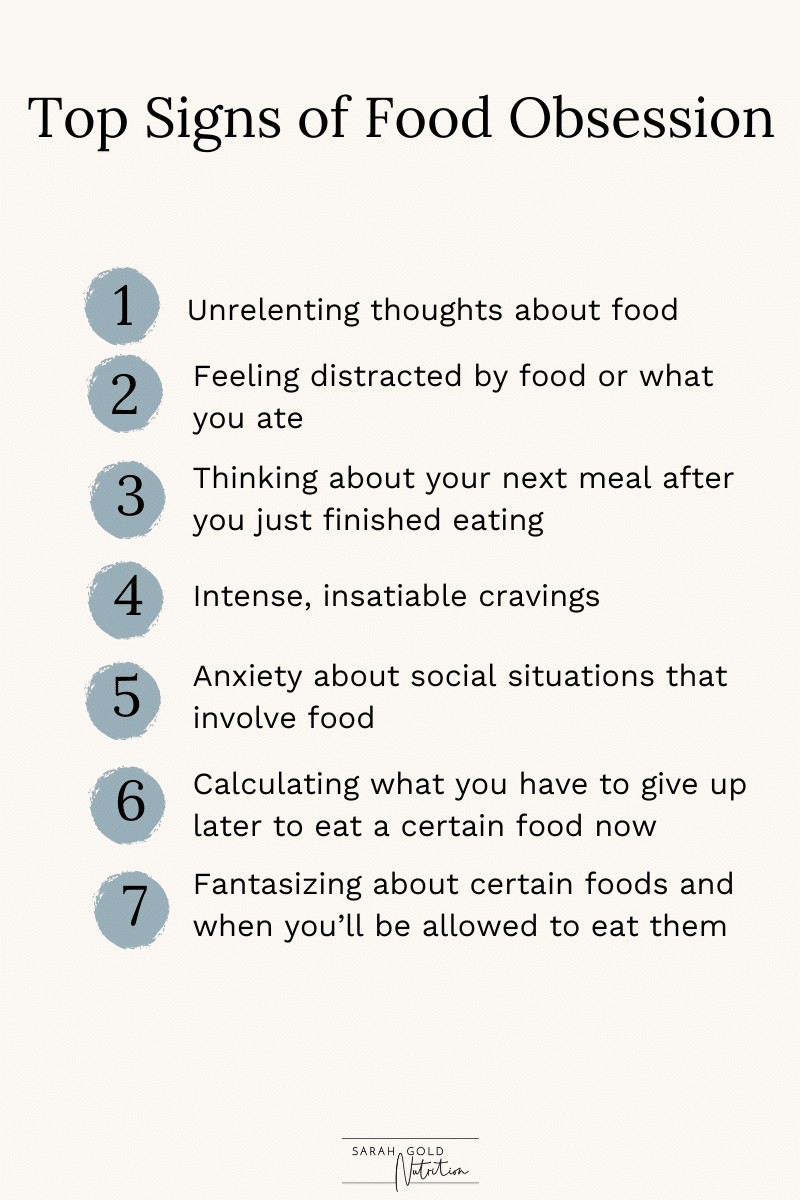Obsessing about food can be mentally draining, often leading to a relentless loop of thoughts. You might find yourself constantly questioning what to eat, when to eat, and how much to eat, followed by guilt when you deviate from self-imposed rules. This preoccupation with food can feel overwhelming, especially given the societal normalization of scrutinizing every bite. However, liberation from this obsession is attainable, leading to a more empowered and fulfilling life.
Here’s a breakdown of the signs of food obsession, its underlying causes, and three actionable steps to help you break free and reclaim your life.
Understanding Food Obsession
Food obsession occurs when your thoughts become dominated by food and eating. This can manifest as mental gymnastics, such as calculating daily calorie intake, negotiating meal timings, constantly thinking about your next meal (even after just eating), or experiencing emotions like joy, guilt, or shame related to food choices.
Recognizing the Signs of Food Obsession:
- Persistent thoughts about specific foods.
- Regularly anticipating your next meal.
- Thinking about your next meal immediately after finishing one.
- Daydreaming about eating certain foods.
- Feeling distracted by food or what you’ve eaten.
- Calculating what you’ll have to sacrifice if you indulge in a particular food.
- Meticulously planning every meal and snack.
- Experiencing intense cravings for specific foods.
- Spending excessive time browsing recipes, food blogs, or watching food shows.
- Intentionally saving calories for later consumption.
- Feeling anxious in social situations involving food, like vacations or holidays.
- Planning exercise routines to “burn off” specific meals.
- Mentally tracking calories, macros, or points.
- Scrutinizing menus in advance and pre-selecting your meals before dining out.
- Intensely scrutinizing food labels and worrying about specific ingredients or nutritional information.
Many of these behaviors are normalized by diet culture and are so common that you may not even realize you’re doing them or that it’s a problem.
Unveiling the Reasons Behind Food Obsession
Frequent thoughts about food often indicate a diet mentality, even if you’re not actively dieting. This can stem from underlying food rules leftover from previous diets, or beliefs acquired from various sources like parents, friends, or social media. Recognizing the root causes of food obsession can empower you to cultivate a healthier relationship with food. Here are three primary reasons:
1. Under-eating: The Body’s Cry for Energy
Constantly thinking about food is often a sign of hunger. Your body is signaling its need for more energy. Ignoring these hunger cues and restricting calories can lead to overeating later, as your body seeks to protect itself from perceived starvation. This, in turn, perpetuates food obsession and feelings of guilt and shame.
The Minnesota Starvation Experiment provides compelling evidence of the impact of under-eating on food obsession. In this study, healthy men on a calorie-restricted diet (averaging 1700 calories per day) exhibited clear signs of food obsession within weeks, including obsessively looking at food photos and manipulating rations. These behaviors persisted for months after the experiment, highlighting the lasting impact of calorie restriction on mindset.
2. Restricting Certain Foods or Food Groups: The Forbidden Fruit Effect
When you deem certain foods off-limits, their forbidden nature can increase their allure. This is the “forbidden fruit phenomenon,” where cravings intensify for restricted items, leading to an increased focus on them.
Research supports this. One study showed that children restricted from eating red M&Ms desired them more than children who had unrestricted access. Similarly, children whose parents restricted sweets at home consumed more candy overall. These findings highlight how restricting foods can backfire, leading to a cycle of restriction and overeating.
3. Mental Restriction: The Guilt Factor
Mental restriction occurs when you allow yourself to eat a food but feel guilt and shame afterward, often due to beliefs that the food is “bad” or will cause weight gain. This internal conflict can trigger obsessive thoughts about food, stemming from past dieting experiences or exposure to negative messaging about certain foods. It’s crucial to recognize that this isn’t a personal failing but rather a biological and psychological response.
Three Steps to End Food Obsession
Overcoming food obsession is achievable by understanding your body’s needs, making peace with food, and reintroducing off-limits foods.
1. Honor Your Hunger and Eat Enough
Listening to your body’s hunger signals is a crucial first step. If you’ve been restricting calories, this may feel challenging, but it’s okay to proceed gradually. You might have lost touch with your hunger cues or fear losing control if you don’t restrict portions. Utilizing an Intuitive Eating Hunger-Fullness Scale can help you reconnect with your body’s signals.
Eating foods that satisfy your taste buds is equally important. Including a food that brings you joy can help reduce post-meal food thoughts.
2. Make Peace with Food
If you label foods as “good” or “bad” or experience guilt after eating specific foods, it’s time to challenge these beliefs. Shifting your perspective can diminish cravings and dismantle the power food holds over you.
Start by identifying the food rules and beliefs that keep you stuck and then dismantle them one-by-one. Begin by asking yourself where these rules came from and whether or not they serve you today.
3. Practice Food Habituation and Reintroduce Off-Limits Foods
Once you’re eating sufficiently and have addressed your food rules, consider food habituation. This involves strategically reintroducing previously restricted foods to lessen their allure and eliminate feelings of deprivation that often lead to overeating and guilt. This practice helps normalize foods, reducing constant thoughts about them.
Concluding Thoughts on Food Obsession
Remember, you are not alone. Societal and healthcare pressures often amplify these feelings, stemming from diet culture rather than a lack of willpower. Overcoming food obsession begins with addressing restriction, whether it’s limiting calories, cutting out food groups, or adhering to rigid diet rules. Paradoxically, the more you restrict, the more food dominates your thoughts. Gradually allowing yourself a wider variety of foods and practicing self-compassion can significantly reduce food obsession.

